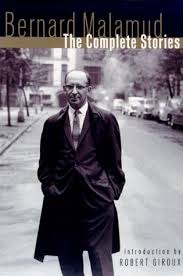Friday Finds for Writers
 Writing-related resources, news, and reflections to enjoy over the weekend. (more…)
Writing-related resources, news, and reflections to enjoy over the weekend. (more…)
 Writing-related resources, news, and reflections to enjoy over the weekend. (more…)
Writing-related resources, news, and reflections to enjoy over the weekend. (more…)

Shabbat shalom.
 So, this past week brought a minor milestone to my writing life: my first submission to The New Yorker‘s “Shouts & Murmurs” department.
So, this past week brought a minor milestone to my writing life: my first submission to The New Yorker‘s “Shouts & Murmurs” department.
I would call the piece that I submitted an example of “literary humor.” I would do so because I can’t quite figure out a better label for it: it’s a short (450-word) piece that essentially brings a 19th-century novel’s character into the present. That’s about all I want to say about it right now.
I submitted the piece via the magazine’s online submission manager, and quickly received an auto-response acknowledging receipt and stating that I “should receive a reply within three months.”
In the meantime, I’m trying to build a list of other possible homes for this piece. You know, just in case The New Yorker declines to publish it. (more…)
 “I’m an American, I’m a Jew, and I write for all men. A novelist has to, or he’s built himself a cage. I write about Jews, when I write about Jews, because they set my imagination going. I know something about their history, the quality of their experience and belief, and of their literature, though not as much as I would like. Like many writers I’m influenced especially by the Bible, both Testaments. I respond in particular to the East European immigrants of my father’s and mother’s generation; many of them were Jews of the Pale as described by the classic Yiddish writers. And of course I’ve been deeply moved by the Jews of the concentration camps, and the refugees wandering from nowhere to nowhere. I’m concerned about Israel. Nevertheless, Jews like rabbis Kahane and Korff set my teeth on edge. Sometimes I make characters Jewish because I think I will understand them better as people, not because I am out to prove anything. That’s a qualification. Still another is that I know that, as a writer, I’ve been influenced by Hawthorne, James, Mark Twain, Hemingway, more than I have been by Sholem Aleichem and I. L. Peretz, whom I read with pleasure. Of course I admire and have been moved by other writers, Dostoyevsky and Chekhov, for instance, but the point I’m making is that I was born in America and respond, in American life, to more than Jewish experience. I wrote for those who read.”
“I’m an American, I’m a Jew, and I write for all men. A novelist has to, or he’s built himself a cage. I write about Jews, when I write about Jews, because they set my imagination going. I know something about their history, the quality of their experience and belief, and of their literature, though not as much as I would like. Like many writers I’m influenced especially by the Bible, both Testaments. I respond in particular to the East European immigrants of my father’s and mother’s generation; many of them were Jews of the Pale as described by the classic Yiddish writers. And of course I’ve been deeply moved by the Jews of the concentration camps, and the refugees wandering from nowhere to nowhere. I’m concerned about Israel. Nevertheless, Jews like rabbis Kahane and Korff set my teeth on edge. Sometimes I make characters Jewish because I think I will understand them better as people, not because I am out to prove anything. That’s a qualification. Still another is that I know that, as a writer, I’ve been influenced by Hawthorne, James, Mark Twain, Hemingway, more than I have been by Sholem Aleichem and I. L. Peretz, whom I read with pleasure. Of course I admire and have been moved by other writers, Dostoyevsky and Chekhov, for instance, but the point I’m making is that I was born in America and respond, in American life, to more than Jewish experience. I wrote for those who read.”
Source: Bernard Malamud’s 1974 “Art of Fiction” interview in The Paris Review. (Thanks to Kyle Minor for bringing this to my attention on Twitter this past weekend, which marked the 100th anniversary of Malamud’s birth.)
 Monday brings the weekly batch of no-fee competitions/contests, paying submission calls, and jobs for those of us who write (especially those of us who write fiction, poetry, and creative nonfiction). (more…)
Monday brings the weekly batch of no-fee competitions/contests, paying submission calls, and jobs for those of us who write (especially those of us who write fiction, poetry, and creative nonfiction). (more…)